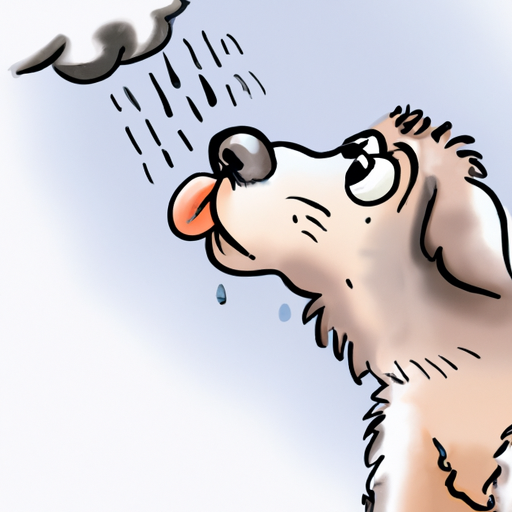Understanding the Basics
Hello there, caring pet owners! It is quite likely that you have noticed the peculiar scent that emanates from your beloved dog when they get wet. This “wet dog smell” is commonly experienced by dog owners worldwide and can be quite a puzzle.
The main reason for this smell is the presence of microorganisms on your dog’s fur. When your dog gets wet, the water molecules evaporate, carrying with them the volatile compounds produced by these microbes. This process releases the smell into the air, which we perceive as the “wet dog smell.”
Microorganisms and Their Role
Microorganisms are an intrinsic part of your dog’s skin ecosystem. It’s crucial to understand that not all of these tiny creatures are harmful. In fact, many of them aid in maintaining your dog’s skin health.
Here’s a simple table to illustrate:
| Microorganism Type | Role |
|---|---|
| Yeasts | Help guard against harmful bacteria |
| Bacteria | Aid in digestion and nutrient absorption |
But, when your dog gets wet, the microorganisms on their skin react to the moisture, resulting in the release of various compounds. This is what leads to that distinct smell.
The Role of Sebum
The next key player in the “wet dog smell” phenomenon is sebum. Sebum is an oily substance secreted by your dog’s skin. It serves to:
- Keep the skin moisturized
- Protect the skin
- Enhance the fur’s waterproofing
When your dog gets wet, the water reacts with the sebum and forms a certain type of bacteria, which again contributes to the smell.
Managing the Wet Dog Smell
Now that we’ve understood why that wet dog smell occurs, let’s move on to what you, as a caregiver, can do to manage it.
- Regular grooming: Brush your dog’s fur regularly to remove any excess sebum and keep the fur clean.
- Use dog-friendly shampoo: Use a shampoo specifically designed for dogs to maintain the skin’s pH balance.
- Dry your dog properly: After a bath or a fun day in the rain, ensure your dog is dried properly.
FAQ Section
Q1: Can I completely eliminate the wet dog smell?
No, the wet dog smell is a result of natural processes and cannot be completely eliminated. However, it can be managed with proper grooming and care.
Q2: Is the wet dog smell a sign of any health problems?
Not necessarily. However, if the smell is excessively strong or foul, it could indicate an infection or skin disease and you should consult a vet.
Q3: How often should I bathe my dog?
This depends on your dog’s breed, lifestyle, and health conditions. Generally, a monthly bath is sufficient, but you should consult your vet for personalized advice.
Q4: Are there any specific products to combat the wet dog smell?
Yes, there are several pet care products available that can help manage the smell. However, always consult your vet before trying new products on your pet.
Remember, as a caregiver, your goal is to ensure the comfort and well-being of your pet. With a little understanding and care, managing the “wet dog smell” can be a breeze. Happy pet parenting!



